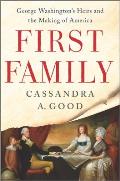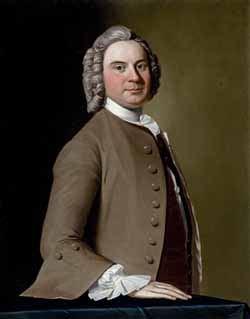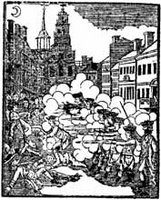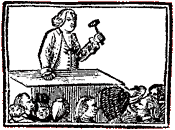“This Hawkshaw drew his sword upon us”?
We have evidence that Gage or his staff actually read those letters for the intelligence they contained—because they got someone in trouble.
Thomas Hawkshaw was a lieutenant in the 5th Regiment of Foot, having served at that rank since 1771. He was involved in or witness to several conflicts in the first months of 1775.
In late January, Don Hagist reminded me, Lt. Col. George Maddison presided over an army court of inquiry into the actions of Lt. William Myers of the 38th. Myers testified that on 20 January two local men had baited him by calling, “The General was a Rascal” and even “The King was a Rascal.” After Myers “knocked down the man who had spoke in this manner,” the town watch showed up, bringing on a bigger confrontation.
Lt. Hawkshaw was among the witnesses in that inquiry. So, however, were more than twenty other army officers, a former army officer, seven enlisted men, two watchmen, and two civilians. That inquiry ended without apparent action on 28 January.
Four days later, on 1 February, Benjamin Alline and Philip Bass filed a complaint to Lt. Col. William Walcott of the 5th about Lt. Hawkshaw. According to Bass, he was escorting a young woman south of Liberty Tree about 9:30 P.M. the previous night, and Hawkshaw and another officer accosted them. After that confrontation, Bass went to an apothecary for a cut on his arm.
Lt. John Barker wrote in his diary for that day: “Lieut. H–ks–w of the 5th put under Arrest for having been concerned in a Riot yesterday evening, in which an Inhabitant was much wounded by him; it is supposed He will be brought to a Court Martial.”
Hawkshaw insisted, however, that he’d been in bed by 9:00 P.M. There’s no record of a formal army inquiry, so perhaps he found witnesses to confirm that and the locals had to let the matter drop.
Years back Prof. Gene Tucker of Temple University sent me transcriptions from the reminiscences of a Revolutionary War veteran named Samuel Cooper (1757-1840). He recounted several anecdotes about conflicts in Boston, but the details don’t match contemporaneous accounts, suggesting that Cooper was working with secondhand knowledge and faulty memory.
One incident stands out because Cooper said he was personally involved in it:
A party of young men, consisting of Benj. Eustis, his brother Geo[rge]., Jno. Cathcart, Ben Hazzard, Tim Green, Jim Otis, & myself had assembled about 9 o[’]cl[oc]k in the even[in]g at the corner of one of the streets, when we were approached by several officers, among them was a Lt. Hawkshaw of the 5th. We were comm[an]d[ed]. to disperse & go home & on our declining to do so this Hawkshaw drew his sword upon us but he had hardly time to raise it before he was disarmed by some of our party & the sword broken over his head; the rest of his associates withdrew.Cooper didn’t specify when this happened, and frankly I doubted it happened as he described. In some of these fights an officer might lose his sword, as Ens. Henry King did in the January fracas. But this quick Yankee triumph sounds too good to be true, and no other report matches it.
Lt. Hawkshaw seems to have been very visible during those months in Boston. People complained about him by name while not identifying other officers who were with him. Or possibly Hawkshaw had become unpopular with the locals because of his testimony in the Myers inquiry, so people were eager to cast blame on him. But he was never brought to a court-martial.
In early April the lieutenant testified in the army inquiry about the dispute between his regimental commander, Lt. Col. Walcott, and Ens. Robert Patrick, discussed here.
And then came the Battle of Lexington and Concord.
TOMORROW: Shot in the face.
















